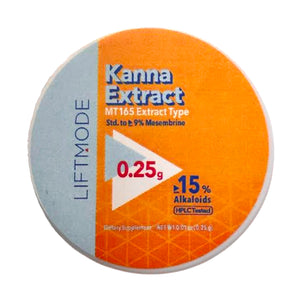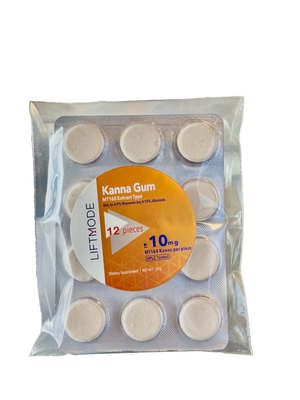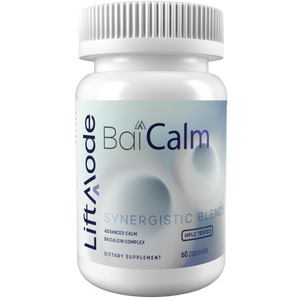L-Tryptophan Benefits
The top benefits of L-Tryptophan have been studied extensively, and we recommend reading through our recent article about the scientifically-verified L-Tryptophan benefits for further information. The top three L-Tryptophan benefits that people are talking about include:- Better mood: Studies have shown that L-Tryptophan supplements have the potential to improve your mood and boost positivity [1]
- Improved cognition: Researchers have found that L-Tryptophan positively affects your memory [2]
- Sleep quality: Numerous studies have presented evidence that L-Tryptophan positively affects sleep by shortening the time to fall asleep and lengthening the REM phase [3]
1. Common Side Effects
According to WebMD, some of the common side effects that people experience when taking L-Tryptophan supplements may include: [caption id=""attachment_1297"" align=""alignright"" width=""290""]- Blurred vision
- Headaches
- Dizziness
- Drowsiness
- Nausea
- Sweating [4]
2. Rare side effects / Interactions
A dangerous interaction can occur when using large doses of L-Tryptophan in conjunction with serotonin agents like SSRIs or MAOIs. This is called ‘serotonin syndrome’. It is caused by a build-up of excess serotonin in your brain. The reason for this is that L-Tryptophan is a precursor compound for serotonin. Taking L-Tryptophan supplements increases the levels of serotonin in your brain, which is great for improving mood and a number of other benefits. [5] However, antidepressants, antipsychotics, and some recreational substances interact with the serotonin system causing a further increase in serotonin. Some of these substances prevent the breakdown of serotonin. This is why combining L-Tryptophan with antidepressants or other substances that affect the serotonin system is not recommended. The symptoms of ‘serotonin syndrome’ may include:- Delirium
- Muscle spasms
- Overheating
- Coma [6]
3. Important for Pregnant and Breastfeeding Women
Taking L-Tryptophan supplements may not be safe during pregnancy. Although L-Tryptophan is an important nutritional compound for pregnant women, there is not yet enough evidence to support the safety of taking high doses of the compound during pregnancy. It is possible that high doses of L-Tryptophan, such as those you’d get from an L-Tryptophan supplement, may affect fetal breathing and cause fetal distress. [7] Although there is not yet enough evidence to show that L-Tryptophan is safe during pregnancy, studies have indicated that L-Tryptophan supplements are safe to take when breastfeeding. A 2015 study published in the Journal of European Neuropsychopharmacology found that L-Tryptophan supplements did not increase the concentration of L-Tryptophan in breastmilk above the concentration found in common infant formulas. [8]4. Eosinophilia-Myalgia Syndrome (EMS):
EMS is a rare illness that causes intense muscle pain and weakness, swelling of the arms and legs, fever, rashes, and increased white blood cell count. In 1989, an outbreak of EMS occurred in the US as a result of contaminated L-Tryptophan supplements. The outbreak affected 5000 people and caused 28 deaths. The impurities in the L-Tryptophan were traced back to contaminated products from L-tryptophan produced by Showa Denko K.K. The Japanese manufacturer agreed to pay for damages to the victims and to reimburse American sellers for the legal costs. [9] After the EMS outbreak, the sale of L-Tryptophan supplements was banned in the US. However, in 2001, the sale of L-Tryptophan was again allowed in the US. Since then, the FDA has imposed stricter regulations on the sale of dietary supplements. [10] However, we always recommend purchasing supplements from a vendor that supplies a third-party Certificate of Analysis. This allows you, the customer, to know exactly what is in the supplement that you’ve purchased and provided unbiased information. [caption id=""attachment_2127"" align=""alignright"" width=""848""]L-Tryptophan Recommended Dosage
The recommended dosage for L-Tryptophan supplements is around 3-5 grams daily for mood increase, appetite suppression, and the promotion of healthy sleep. Clinical studies recommend using no more than 6 grams of L-Tryptophan in a single dosage to improve mood and cognition. [11]Conclusion
In conclusion, L-Tryptophan is generally considered as a safe and useful dietary supplement. L-Tryptophan is found in a number of food sources but not in sufficient quantities to experience its other benefits. This is why people are recommended to use a high-quality L-Tryptophan supplement. The main side effects to be aware of are headaches, dizziness, drowsiness, nausea, and sweating – at higher doses. Pregnant women should avoid taking L-Tryptophan supplements until further research is published. Studies indicate that breastfeeding women can safely take L-Tryptophan supplements. People taking antidepressants or antipsychotics like SSRIs or MAOIs should avoid using L-Tryptophan supplements in case of interactions and to avoid the risk of ‘serotonin syndrome’.Medical Disclaimer
Not intended to treat, diagnose, or cure any disease or ailment. Please read and fully understand potential adverse effects before using this product. These statements have not been reviewed by the FDA and are not written by a medical professional. Please consult your doctor before using any supplements, especially if you have any medical conditions.
Tristan
B.Sc. in Molecular Biology and Biochemistry Researched & written by Tristan and verified by the Liftmode.com Research Team




